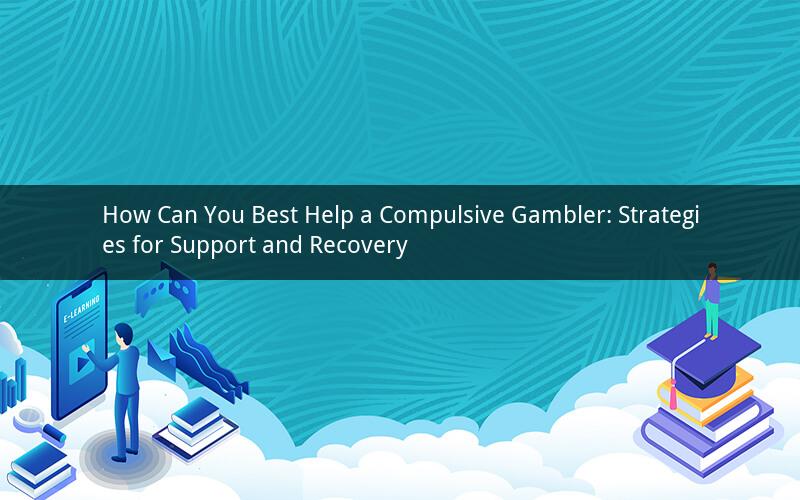
Introduction:
Compulsive gambling is a complex issue that affects millions of people worldwide. It is a form of addiction that can lead to significant financial, emotional, and social consequences. If you know someone who is struggling with compulsive gambling, it is crucial to understand how you can best help them on their journey to recovery. This article explores various strategies and support systems that can assist compulsive gamblers in overcoming their addiction.
1. Educate Yourself about Compulsive Gambling:
The first step in helping a compulsive gambler is to educate yourself about the nature of the addiction. Understanding the signs, symptoms, and consequences of compulsive gambling can help you provide more effective support. Familiarize yourself with the following aspects:
- The definition and characteristics of compulsive gambling.
- The psychological, financial, and social consequences of gambling addiction.
- The different types of gambling behaviors and their associated risks.
2. Encourage Open Communication:
Establishing open and honest communication with the compulsive gambler is essential for their recovery process. Here are some tips to facilitate effective communication:
- Create a safe and non-judgmental environment where they feel comfortable sharing their struggles.
- Listen actively and empathetically, without passing judgment or criticism.
- Avoid confrontational language or accusations that may provoke defensiveness.
- Encourage them to express their feelings and concerns openly.
3. Encourage Professional Help:
Compulsive gambling is a treatable condition, and seeking professional help is crucial for recovery. Here are some recommendations:
- Suggest that they consult a mental health professional specializing in addiction.
- Encourage them to attend therapy sessions or support groups, such as Gamblers Anonymous.
- Provide information about local resources and support organizations that can assist them in their recovery journey.
4. Financial Support and Management:
Compulsive gambling often leads to significant financial difficulties. Here are some strategies to help manage their financial situation:
- Encourage them to seek financial counseling or therapy to address the underlying issues contributing to their gambling addiction.
- Assist them in creating a budget to manage their expenses and pay off debts.
- Encourage them to explore alternative sources of income or financial support to alleviate financial stress.
5. Encourage Healthy Lifestyle Choices:
A healthy lifestyle can contribute to the overall well-being of a compulsive gambler. Here are some suggestions:
- Encourage regular exercise and physical activity to improve mental and emotional health.
- Suggest engaging in hobbies or activities that provide a sense of fulfillment and distraction from gambling.
- Promote a balanced diet and adequate sleep to maintain physical and mental health.
6. Provide Emotional Support:
Supporting the emotional well-being of a compulsive gambler is crucial for their recovery. Here are some ways to offer emotional support:
- Offer your unconditional love and understanding, emphasizing that their addiction does not define them.
- Celebrate their successes and milestones, no matter how small, to boost their confidence and motivation.
- Be patient and understanding, recognizing that recovery is a challenging and lengthy process.
7. Encourage Relapse Prevention:
Relapse is a common challenge in the recovery process. Here are some strategies to help prevent relapse:
- Discuss and develop a relapse prevention plan together, identifying potential triggers and coping mechanisms.
- Encourage them to maintain a strong support network, including friends, family, and support groups.
- Remind them that relapse is not a failure but an opportunity to learn and grow in their recovery journey.
8. Be Patient and Understanding:
Recovery from compulsive gambling is a gradual process that requires time and patience. Here are some reminders:
- Understand that recovery is not a linear journey and may involve setbacks.
- Avoid pressuring them to recover at a pace they are not comfortable with.
- Continue to provide support and encouragement throughout their recovery journey.
Conclusion:
Helping a compulsive gambler on their path to recovery is a challenging but rewarding endeavor. By educating yourself, encouraging open communication, seeking professional help, managing finances, promoting a healthy lifestyle, providing emotional support, and being patient and understanding, you can make a significant impact on their recovery journey. Remember, the road to recovery is unique for each individual, and offering support and understanding is key to their success.
Questions and Answers:
1. Q: Can compulsive gambling be cured completely?
A: Yes, compulsive gambling can be treated and managed effectively. With appropriate support, therapy, and lifestyle changes, individuals can achieve long-term recovery.
2. Q: How can I help a compulsive gambler who is in denial about their addiction?
A: It is essential to approach the situation with empathy and patience. Encourage them to seek professional help and express your concern without being confrontational or judgmental.
3. Q: Can family therapy be beneficial for a compulsive gambler?
A: Yes, family therapy can be highly beneficial for both the compulsive gambler and their loved ones. It can help address underlying issues, improve communication, and provide support to the entire family.
4. Q: What can I do if the compulsive gambler is in danger of losing their home or other assets due to gambling debts?
A: Encourage them to seek financial counseling or therapy to address the gambling debts. Consider exploring options like debt consolidation or bankruptcy, depending on the severity of the situation.
5. Q: How can I support a compulsive gambler during their recovery journey?
A: Provide consistent and unconditional support, encourage them to attend therapy and support groups, offer to help with daily tasks or errands, and be a reliable source of emotional support throughout their recovery journey.